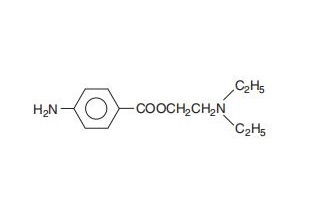What is Tetracaine Hydrochloride used for?
Sep 28,2020
Tetracaine hydrochloride is considered the most potent of the topical anesthetics. It is not made available for injection and with topical preparations is typically combined with other drugs.
• Classification: Tetracaine hydrochloride is an ester.
• Available concentration: 2% in topical preparations.
• Onset of action: Slow; peak effects may take up to 20 minutes.
• Duration: Approximately 45 minutes.
• Maximum recommended dose: 20 mg for topical administration; 1 mL of a 2% solution.
• Metabolism/excretion: Metabolized by plasma pseudocholinesterase/excreted in the kidneys.
• Pregnancy/lactation: FDA Category C/Caution is recommended during lactation.
• Special considerations: Highly soluble in lipids, making absorption into local tissues very rapid.
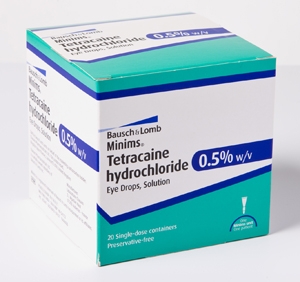
Application
Tetracaine hydrochloride is also known as ropivacaine hydrochloride, pantocaine, pantocaine and four ropivacaine hydrochloride. It is easily soluble in water and ethanol, but insoluble in ether, benzene. Tetracaine hydrochloride is a local anesthetic with long-acting ester. In addition, procaine is widely used in clinical, but because of its poor permeability and poor narcotic performance, a small tetracaine was found in 1930 found.
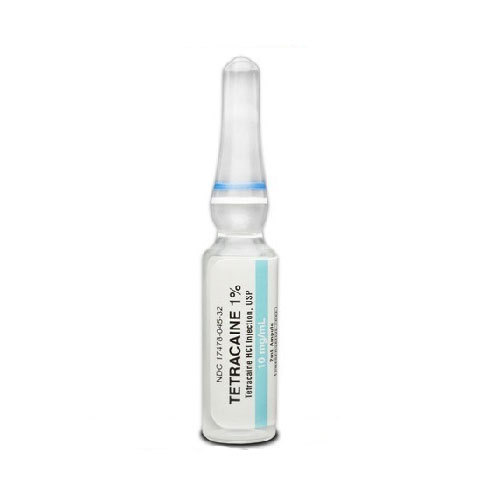
Tetracaine hydrochloride can be used for topical anesthesia, and 0.05%-0.1% tetracaine hydrochloride can provide long-term and good effect of surface anesthesia. Meanwhile, tetracaine hydrochloride is still widely used in ophthalmic surface anesthesia, which has a long time for surface anesthesia and sensory resistance.
Side Effects
Common side effects include a brief period of burning at the site of use.Allergic reactions may uncommonly occur. Long term use is generally not recommended as it may slow healing of the eye. It is unclear if use during pregnancy is safe for the baby. Tetracaine hydrochloride is in the ester-type local anesthetic family of medications. It works by blocking the sending of nerve impulses.
- Related articles
- Related Qustion
- Tetracaine Hydrochloride: A Comprehensive Overview Jul 12, 2024
Tetracaine hydrochloride, commonly known as amethocaine, is a potent local anesthetic widely used in medical practice.
- Tetracaine hydrochloride: mechanism of action and activity Jun 21, 2023
Tetracaine hydrochloride is a versatile compound that exhibits multiple pharmacological activities, including potent antitumor effects, antibacterial properties, and long-acting local anesthetic.
- Tetracaine hydrochloride – a local anesthetic widely used in clinic Dec 30, 2019
Tetracaine hydrochloride is a local anesthetic used to numb the eyes, nose, or throat. It may also be used before starting an intravenous to decrease pain from the procedure. Typically it is applied as a liquid to the area.
Procaine hydrochloride is used as the sole local anesthetic agent for pain control in dentistry, as it was from its introduction in 1904 until the introduction of the amide local anesthetic lidocaine in the late 1940s。....
Sep 27,2020Antineoplastic agentsIn general, inhaled methods of euthanasia fall into one of two mechanisms: (i) hypoxia and/or (ii) direct depression of neurons vital for life functions.....
Sep 29,2020Nervous system drugsTetracaine hydrochloride
136-47-0You may like
Tetracaine hydrochloride manufacturers
- Tetracaine hydrochloride
-
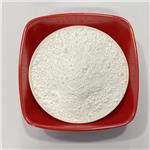
- $40.00 / 1box
- 2024-07-12
- CAS:136-47-0
- Min. Order: 1box
- Purity: 99.9+
- Supply Ability: 2000box
- Tetracaine hydrochloride
-
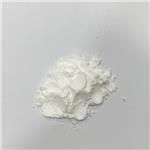
- $40.00 / 1box
- 2024-07-12
- CAS:136-47-0
- Min. Order: 1box
- Purity: 99.9+
- Supply Ability: 2000box
- Tetracaine hydrochloride
-

- $1.00 / 1g
- 2024-07-12
- CAS:136-47-0
- Min. Order: 10g
- Purity: 99%
- Supply Ability: 300tons




